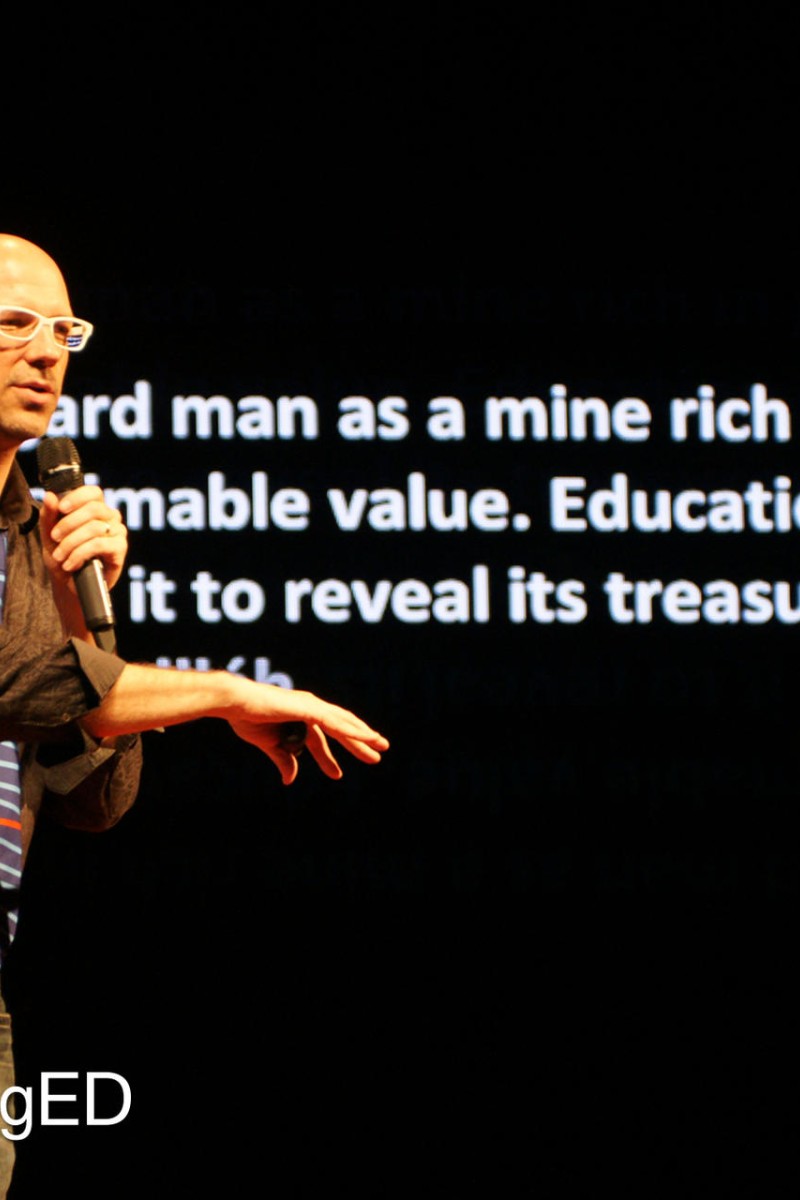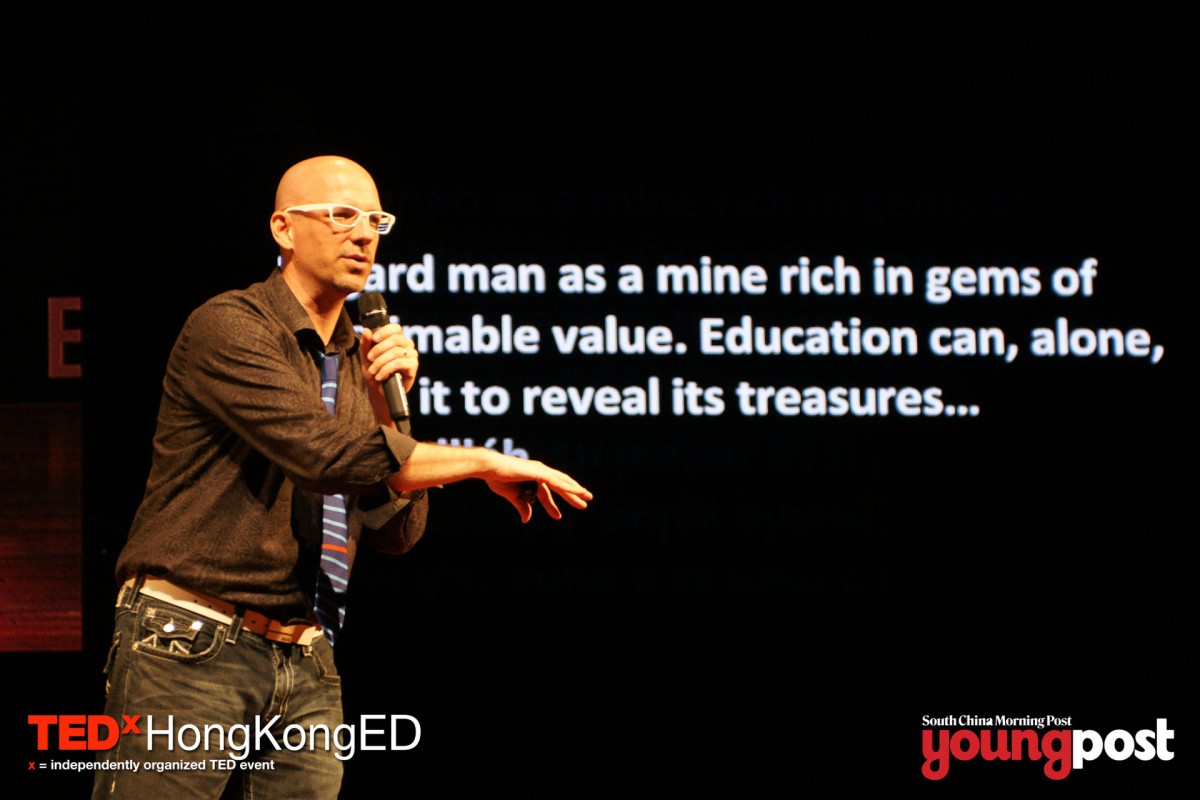
Junior reporters takes inspiration from TEDxHongKong speakers
YP junior reporters soak up some inspiration from some of the world's brightest thinkers at TEDxHongKong
 Daniel Makoski, designer and former head of design at Google
Daniel Makoski, designer and former head of design at GoogleThe next TEDxHongKong event is on Saturday at Hong Kong Science Park. The theme is "Fresh!" and will feature speakers with fresh ideas, including American diplomat and bestselling author, Gregory Winston Slayton. There will also be a simultaneous transmission of TEDGlobal 2014 from Brazil.
The last TEDxHongKong event was held on May 31 under the theme "InspirED" - inspired learning. Three Young Post junior reporters were invited to the talk, and this is what they learned...
Creating design from scratch
When we first entered the auditorium, we were each given a small lump of plasticine. The reason became clear when Daniel Makoski, who worked as head of design at Google, began to speak.
Makoski is a designer who thrives on innovation and creativity. His father was a graphic designer and his mother was an actress, so creativity was something he grew up with. It led to him encourage the same kind of character in others.
He talked about his journey, saying that he discovered that anyone could design or solve simple design flaws - and by anyone, he meant any person plucked from the street.
Given the right materials, a person could design their dream phone, allowing designers to take those ideas and make them into reality. These materials included tools like paper, post-its, notebooks, sheets of plastic, markers, paper clips, scissors and Play-Doh.
Play-Doh? Yes, Play-Doh.
When he first introduced the idea to us, we were confused - after all, there is only so much you can do with plasticine. But he asked us to create the perfect toothbrush in 10 seconds, and then went into the audience to see what some of us made, because we would be coming up with new ideas others wouldn't have thought of previously.
Makoski's presentation allowed us to see another way of creating fresh ideas in the most efficient way possible. Who knew that a toy meant for children could be the tool that creates our future?
Sharon Cheng
How failure can lead to success
Dr Judy Tsui was the vice-president of international and executive education at Polytechnic University, head of the department of accountancy at City University, and a visiting scholar at the Sloan School of Management of the Massachusetts Institute of Technology in the US.
This has given her great insight into education, and inspired her to suggest a new learning model that would create a better education system. She described this model by using teachings from both Confucius and Socrates.
Although Confucius and Socrates were from opposite sides of the world, a common idea links both the East and the West - we should not be afraid to fail.
Failure means accepting challenges, which arouses creativity and new ideas.
Socrates often taught through playing, and this lets someone safely fail and try again (and again). Confucius' teachings focus on reflection and how we can improve. This increases a person's awareness of their weaknesses, and helps them succeed.
Tsui also talked about how parents can influence students' learning. Instead of having a perfect, pre-planned path for their children, parents have to accept that they will fail sometimes. "Perfection" is simply impossible for most children, and incredibly stressful for all.
Leanne Lam
Moving beyond money
Why do you do what you do? What motivates you? Most answers will illustrate humanity's never-ending pursuit of money and power.
Steve Brown, founder and CEO of film and media company Ignite Channel, claims that these values have caused art, nature, and people to be defined only by monetary standards, reducing them to "static, dead objects".
"With these current values, society creates a 'hierarchy of influence', with some people having more, and others less, which demotes collaboration, creativity and learning," he said. Brown proposes the adoption of "scale-free values", such as learning, collaboration and creativity, which would create a free network of equals.
When money or power does not have any influence, people are free to be themselves without being judged by others.
They begin to value the process of learning and collaboration, and these scale-free values promote innovation, creativity and growth.
Without a price tag stamped on everything, we can start to appreciate people beyond their superficial value, and instead discover their priceless talents and virtues.
The adoption of scale-free values, Brown says, will lead to a meaningful life.
Grace Wang